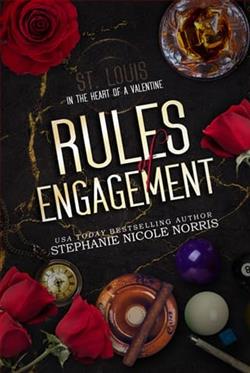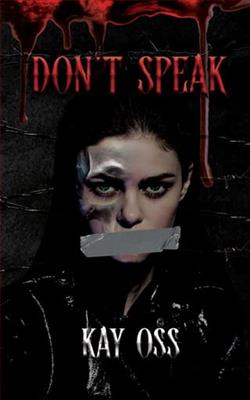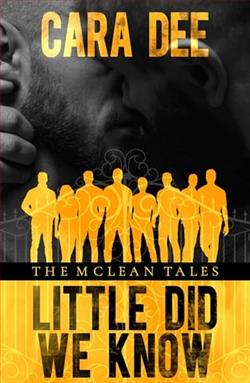Page 7 of Deadly Hope
“Basic.” She stacked patient folders, trying to ignore how the paper shook slightly in her hands. “Motion sensors, cameras on the parking lot.”
“Not enough.” His voice was clipped, professional. “You need better coverage on the fire escape. And that back door’s too exposed.”
She caught him scanning the ceiling corners, probably cataloging blind spots. The tactical assessment should have felt invasive in her office space. Instead, it was oddly reassuring—like having a highly trained guard dog suddenly appear when you needed one most.
Their eyes met across the chaos of her office. In that moment, all pretense of therapist and patient evaporated. They were just two people who’d been in the trenches together, who recognized the competence in each other’s movements.
The scattered files weren’t random, she realized. Just like nothing had been random these past months. The adjusted car seat. The subtly moved items in her office. The white SUV Marisol kept noticing.
She watched her new client force himself to relax, though he didn’t turn his back to the door or the window. That protective instinct should have felt patronizing. Instead, it stirred something warm and dangerous in her chest—something that had nothing to do with professional objectivity and everything to do with the way he’d fought to keep her safe.
He glanced over her. “You took a hit to the solar plexus and he had you by the throat.”
“I’m fine,” Olivia insisted, but the man’s steady gaze didn’t waver.
“Let me check.”
His tone was pure field medic—the kind that brooked no argument. She recognized it from her own ER days. Still, professional boundaries screamed at her to maintain distance. “I can call my doctor?—”
“Who’ll see you hours from now, if you’re lucky.” He kept his distance, hands visible, voice matter-of-fact. “Two minutes. Then we call whoever you want.”
She exhaled slowly, acknowledging the logic. “Two minutes.”
He moved with careful efficiency, keeping his movements telegraphed and clinical. “Follow my finger with your eyes.” The command was gentle but firm. She complied, noting how he still positioned himself to keep the door and window in his peripheral vision.
“Any dizziness? Nausea?”
“No.” The familiar questions steadied her. “Breathing’s normal, no chest pain. Just bruising.”
His lips quirked slightly. “I’m supposed to be asking the questions.”
“Force of habit.” She managed a small smile. “Spent too many years on the other side of this.”
His fingers pressed gently along her throat, checking for tracheal damage. Despite his clinical touch, awareness of his proximity zinged through her nervous system. “First responder?”
“ER crisis counselor. LA County Medical Center.” She tried to focus on his questions, not the warmth of his hands or the faint scent of cedar and gunpowder that clung to him. “Before I switched to private therapy.”
He hummed acknowledgment, stepping back. “No serious tissue damage. Bruising will be impressive, though.” His eyesmet hers, professional mask slipping just enough to show genuine concern. “You should get checked out properly. That kind of throat hold can cause delayed symptoms.”
She rubbed her neck, missing his touch and hating herself for it. “I’ll call my doctor.”
5
“Police,”a voice called out from just outside the suite. “Dr. Kane?”
“In here.” Axel opened the door.
Two men entered. Detective Draeger leaned against her bookshelf, his weathered face creased with genuine concern. She’d seen him around Hope Landing enough to know his reputation—thorough, compassionate, old-school police work. The kind of cop who still walked Main Street on Friday nights greeting shopkeepers by name.
“Dr. Kane?” Draeger looked between her and Axel. “Want to tell us what happened here?”
His partner, Officer Trujillo, photographed the broken window, his movements careful around the scattered glass. Despite his imposing size, the younger officer had always struck her as gentle—she’d seen him coaching Little League at Memorial Park, patient with even the clumsiest players.
She caught Axel’s slight shift in posture—barely perceptible, but she’d learned to read clients’ micro-expressions. He was listening intently, cataloging every detail.
“Someone broke in,” she began, keeping her voice professional. “When I confronted him, he grabbed me?—”
“Anything missing?” The older officer gestured at the scattered papers.















